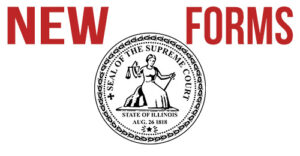 Answers, Counterclaims, and Defenses
Answers, Counterclaims, and Defenses
As my readers know from my posting infrequency over the last few months, things are super busy in our landlord-tenant practice. However, this morning, a fellow attorney alerted me to an issue that I want to take time out to share. The Supreme Court Commission on Access to Justice has promulgated a set of new Answer, Defenses, and Counterclaim forms for tenants’ use in eviction cases. The forms can be found here on the Illinois Courts webpage.
These forms will be a game-changer for unrepresented tenants. Why? They will make it exceedingly easy for tenant-defendants in evictions to raise issues that may or may not be correct but that will result in a stall, delay, or additional complexity in the eviction action. When those issues, such as defenses related to property condition are raised, complex procedural actions will need to be taken by the litigation participants (including and especially pro-se defendants). These actions will add to the time in litigation. When things take more time, that means there is more cost to the landlord for the eviction in (1) time where the property cannot be used to generate income and (2) attorney’s fees and costs.
In essence, the tenants are being spoon-fed the way to answer an eviction complaint. Unscrupulous tenants will make unsubstantiated or exaggerated claims because the form makes it easy to do so. As though the efforts to provide resources to tenants such as free legal services, legislative fee-shifting, and the Early Resolution Program (ERP) are not enough, these answers and instructions on answers, defenses, and counterclaims will make an already cumbersome process that (under current conditions) usually takes at least six months in Cook County (1st district) to complete even longer and cost even more.
It begs the question – is this a circumstance of the State of Illinois giving legal advice to tenants? Even worse, is this the State of Illinois taking a position in a private contractual matter between parties in favor of one party (tenant) and against the other (landlord)?

As a landlord, what can you do about it? There is a time period for public comment that is open until December 30, 2022. After that time, the Illinois Supreme Court Commission on Access to Justice will review feedback and will make necessary revisions.
